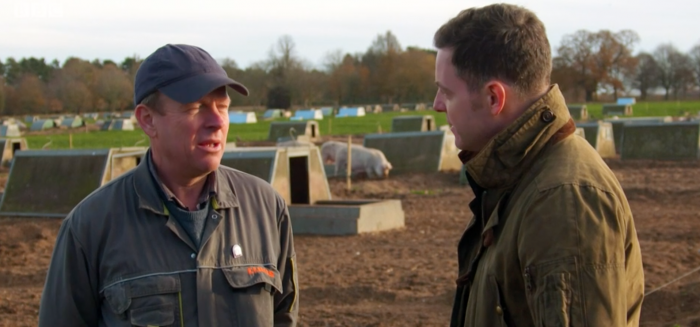This year’s site move has, for us, broken all records, not in a particularly good way.
Starting in the first week of September and with the old site all cleared up at the end of January, it rather dragged on, with obstacles of prolonged staff illness, holidays and Christmas, not to mention the wet weather, in the way. I never really feel the job is done until the tractors turn up to get the vacated ground ready for the next crop – which, as usual here, is sugar beet – and hopefully not find too much detritus in the shape of fence posts, wire, water pipe and bits of disintegrating sow arks.
Travelling around, I look on with envy at the growing number who manage to move on to grass. The benefits appear to be enormous – better drainage of the soil, better environment for the sows and staff, and it just looks better.
I have tried with my landlord until I am blue in the face to engineer a situation where we can get grass in the slot before pigs, suggesting under-sowing maize or cereals, growing early harvested forage rye for the AD plant and giving a slot to sow grass in June, but all to no avail.
Maybe the planned Environmental Land Management Scheme replacement for the Basic Payment Scheme might offer the opportunity. Really though, I should have used some basic psychology to get them to think of it as their idea.
The increase in herds going on to grass is due to one integrator, which is able to incentivise its breeders to pay extra rent in order to get grass established up to a year ahead. Plaudits should also go to those producers who have built businesses sufficiently attractive for certain processors to want to buy them to further add to their large pig production arm. I fully expect that all parties will have done well out of it.
Those of us that make up the dwindling number of independent producers can survive and prosper by working together, through being a member of a buying group and by marketing through a group to gain the scale to remain competitive.
The buying group that I am a member of has tremendous buying power in everything from tractors to ear tags, but the big advantages for the pig producer members are in the collective buying power for vaccines and the ability, through scale, in being able to risk-manage feed raw material purchases and milling costs.
Selling through a group gives access to contracts not otherwise available, monitoring of that contract and guaranteed, swift payment. In the words of a Canadian farmer who was a big fan of co-operation, it’s all about ‘working together to maintain our independence’.
Of course, sometimes, someone might get a better deal somewhere by not co-operating – these deals rarely endure and all it serves to do is break the resolve of those who do stick together.




